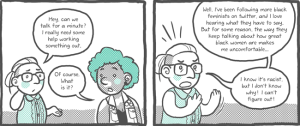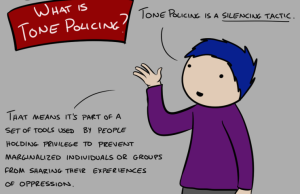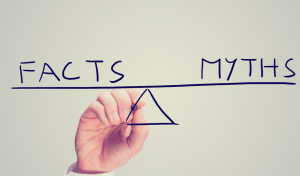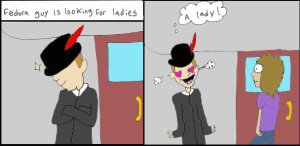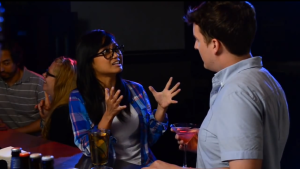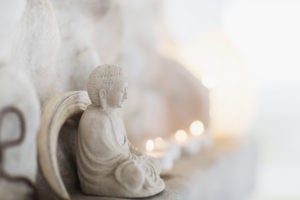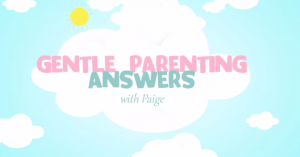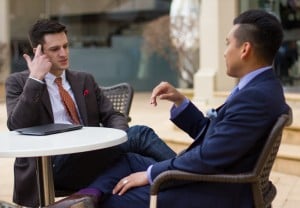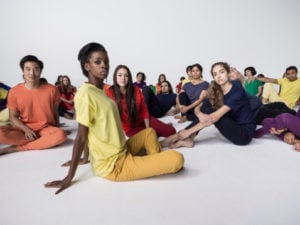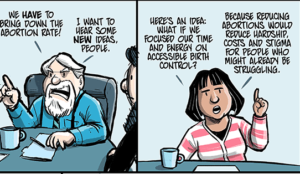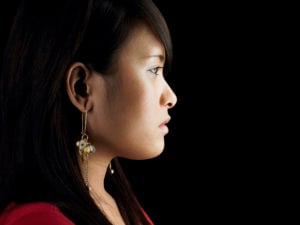
Source: HUffington Post
(Article has been translated in Slovak here.)
We like to think we’ve come a long way.
We like to think that, when it comes to LGBTQIA+ rights, we’ve made leaps and bounds toward equal rights and social acceptance.
And we have.
But there are still subsets of the queer community that are being ignored or ridiculed, even from within the community itself.
And one of these groups is bisexual people.
We ask them all kinds of questions to illustrate just how skeptical we are that this queer phenomenon could actually exist, so skeptical that science has had to step in to prove that yes, this is actually a thing.
As a society, we are beginning to question the rigid labels we love to sticker onto people; feminist and LGBTQIA+ activists are asking questions that will shift the norms of gender into a more fluid system dictated by the individual and not by an archetype.
But still, there is push back from the human instinct to define, and bisexuality raises eyebrows and prompts questions that spurn an entire group’s lifestyle and identity.
So, for the sake of respecting personal choice, here are eight questions that we should probably – no, definitely – stop asking.
1. Do You Have Lots of Threesomes?
For some reason, bisexuality is associated with an insatiable libido and non-stop orgies with—well—everyone.
But just because someone is sexually attracted to two or more genders does not mean that they are endlessly seeking to get them in bed (and especially not at the same time!).
Most bisexual people simply do not restrict their relationships to one gender; bisexuality, just like homo- and heterosexuality, is also about both romantic and sexual attraction and opens you up to the beautiful love that multiple genders can offer.
That doesn’t mean that they need all of that beautiful love all the time altogether.
2. Are You Just Afraid to Come Out as Gay?
I’ve heard people accuse bisexual people of using their sexuality as a support to avoid coming out as homosexual.
Unfortunately, there are indeed cases of people in relationships with another gender who, while romantically or sexually attracted to the same gender, claim bisexuality to justify why they are still with someone they are clearly not into.
And surely, people like this can give a bad reputation to those who truly are into multiple genders, but they also need the love and support necessary to allow them to be who they are.
More importantly, these cases are few and far between. This isn’t the norm. If someone tells you that they’re bisexual, it’s far more likely that they are bisexual than someone who is in the closet.
3. How Do You Know You’re Bisexual if You’ve Never Been with Someone of the Same Gender?
We never ask this question of heterosexuals. Ever.
Imagine asking a teenager in high school who’s never had a girlfriend and is complaining about his loneliness: “You’ve never had a girlfriend, though, so how do you know you’re straight?”
You don’t need to date someone to know you’re attracted to them. If that were the case, our dating process would be a whole lot different – and way more difficult.
4. Is This an Experimental Phase?
Apparently, the experimental phase is something we all are supposed to go through some time before we graduate college, and it typically involves a drunken kiss or a one-night stand with someone of the same gender.
The problem with associating this phase with bisexuality – aside from the fact that assuming that this is a phase that all people actually go through – is that it is incredibly demeaning to those who are bisexual, those who are earnestly seeking a loving relationship with someone regardless of gender.
There’s little more degrading than being used as someone’s guinea pig to test their sexuality, especially if you are unaware of it and see a potential partner in them. And it’s offensive to imply that that is what bisexual people are doing.
5. You Married Another Gender; Does That Mean You’re Straight Now?
It absolutely does not.
Just because you have chosen someone of a certain gender to spend the rest of your life with does not mean you’ve forsaken your sexual orientation.
You chose that someone for who they are, not for their gender. If I normally drink coffee and tea, but for a week I decide to drink only tea, does that mean I stopped liking coffee?
6. So You’re 50/50?
Bisexual people are not hybrid creatures who are inevitably half gay, half straight, but this seems easier for people to grasp than the idea that a bisexual can be more attracted to one gender than another.
This idea is often met with attempts to label the person heterosexual or homosexual based on the gender they are most attracted to.
It is possible to be bisexual but prefer men, or prefer women, and it is also possible for that preference to change and to still remain bisexual.
7. How Can You Be Monogamous?
Being bisexual doesn’t mean you are constantly shifting between heterosexual and homosexual relationships, never able to settle down.
As discussed earlier, it is not an inconsistent idea that a person might opt to spend their life with one gender, a choice not dictated by sexuality, but by love.
Just like any person finds themselves attracted to more people than just their partner, so is the case for bisexual people. And just like any person can remain monogamous despite those attractions, so can bisexual people.
That being said, it’s important to remember that monogamy is not the only way to be in a committed relationship. People of any sexual orientation can be nonmonogamous and have perfectly healthy relationships.
Not all bisexual people are nonmonogamous, but those who are deserve respect for their relationship choices as functions of love and sexuality, not inevitable results of their sexual orientation.
8. Does That Mean You’re Attracted to Me?
This question isn’t limited to bisexual people; as soon as your same-gender friends find out you are gay or bi, the question will burn in their minds whether or not you are attracted to them. We know that mere existence as someone’s preferred gender isn’t enough to merit attraction, yet we still feel the need to ask this question.
Let’s not.
Because being interested in a certain gender does not magically translate to being attracted to everyone of that gender.
So Now What?
It would be unfair to criticize a problem without proposing a solution, so now that we’ve looked at what not to ask, here are some alternatives to ask instead.
1. Will You Tell Me about Your Loved One?
If the person you are speaking to is in a relationship, ask them about it.
It will help you to see the universality of love; it is a language we all speak.
Though there are many dialects, it is difficult not to appreciate and respect when one believes they have found someone who speaks to their core.
2. What Can I Do to Better Understand?
Criticism and judgment often come from a lack of understanding.
Attempts to debase someone’s personal choice and lifestyle are successful when their humanity is removed from consideration.
Asking this question deconstructs generalizations and allows you to interact with and relate to the person as an individual, not as a representation of an entire group whose values and lifestyle you dislike or do not understand.
3. What Can I Do to Help?
Ask this question to show that, even if you do not understand, you are willing to show support.
We ask this question when we believe in a cause, or in a person; it is a great demonstration of basic human love, and the willingness alone goes a long way.
Though there are various ways unique to the individual, you might be asked to help by dispelling false notions or harmful jokes about bisexuality when you hear them among your friends, or simply by being a listening ear.
***
Hopefully this list has dispelled some misunderstandings about what it means to be bisexual. It’s important to also keep in mind that sexuality is fluid, and we should not try to fit people into neat boxes labeled with their sexual orientation.
[do_widget id=”text-101″]
Elena Novak is a graduate of Florida State University with a B.A. in Creative Writing. She is currently completing a journalism internship at the Raleigh News & Observer while remaining dutiful to writing, music, and gender issues. She also likes spontaneous dance parties and all things quirky and vintage. Follow her on Twitter @elenachristinaN.
Search our 3000+ articles!
Read our articles about:
Our online racial justice training
Used by hundreds of universities, non-profits, and businesses.
Click to learn more





